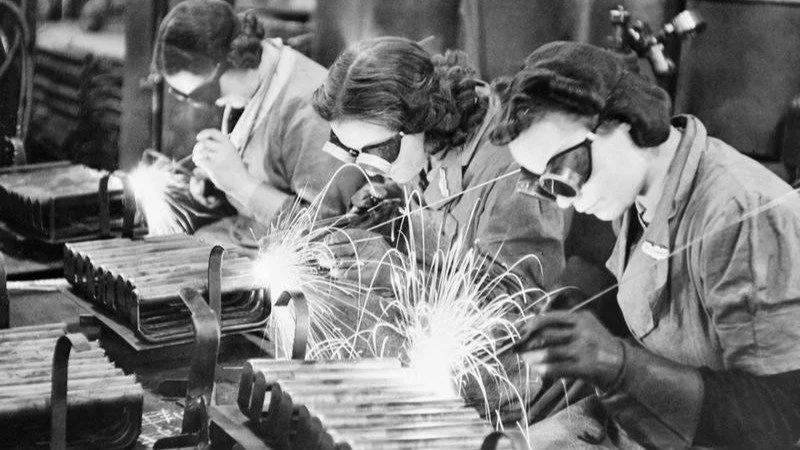We Will Remember Them... and the contributions of British Industry
This year is the 80th anniversary of the end of the Second World War. It was the most devastating and lethal war in history.
This year we saw the Royal British Legion paying tribute to the Second World War generation, from British, Commonwealth and Allied Forces, by marking VE Day (8th May) and VJ Day (15th August).
At the heart of the nation's events are the men and women who served and gave so much to secure peace and the freedoms we enjoy today. The RBL invited communities to organise events and exhibitions to recognise the service and sacrifice of the war generation.
The Role of British Industry in World War II
British industry played a decisive role in securing Allied victory during World War II. When war broke out in 1939, Britain faced the immense challenge of transforming its peacetime economy into a wartime production powerhouse capable of sustaining both its Armed Forces and those of its allies.
Under the direction of the Ministry of Supply and the Ministry of Aircraft Production, British factories rapidly shifted to manufacturing weapons, vehicles, and aircraft on an unprecedented scale. Iconic machines such as the Spitfire and Hurricane fighters, built by companies like Supermarine and Hawker, became symbols of industrial ingenuity and were crucial in the Battle of Britain. At the same time, shipyards on the Clyde, Tyne, and Mersey turned out merchant and naval vessels to maintain Britain’s lifeline across the Atlantic.
Industrial mobilization extended beyond heavy industry. Women entered the workforce in record numbers, taking on roles in munitions factories and engineering plants. Civilian industries were repurposed — car plants produced tanks, and textile mills manufactured uniforms and parachutes. Scientific research also thrived, leading to advances in radar, cryptography, and jet propulsion.
Despite the constant threat of bombing during the Blitz, production continued with remarkable resilience. By 1944, British industry had reached peak output, contributing not only to national defence but also to the supply of Allied operations in Europe and beyond.
In essence, Britain’s industrial capacity and adaptability were vital to the war effort. The coordination between government, industry, and labour forged a model of total war production that underpinned the eventual Allied victory in 1945.
As an advocacy body, we champion the Armed Forces in industry. As part of our commitment, we take this moment to salute not only all who served, but also industry that underpinned the victory.

